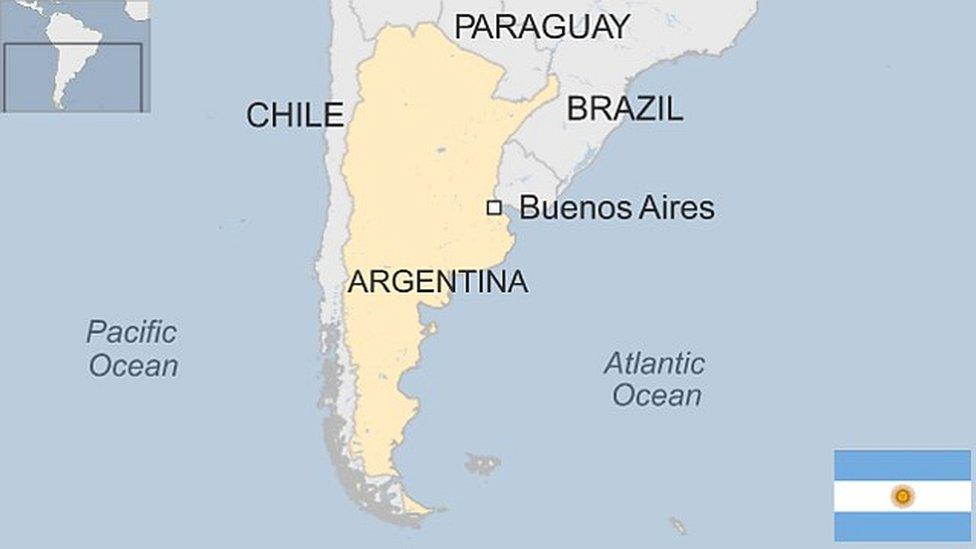Argentine grandmothers determined to find 'stolen' babies
- Published
The Grandmothers of the Plaza de Mayo found their 108th child this year
An estimated 30,000 mainly young people disappeared during Argentina's military rule (1976-83). They were arrested, taken to prison camps, tortured and killed.
Many were thrown into the sea on notorious "death flights".
But the Argentine military drew the line at murdering pregnant women. They were allowed to give birth in prison - only to be murdered a few days later.
The babies were given to military families. There were lists among the armed services of childless couples who wanted them.
The authorities believed that if the children were brought up with the "right" kind of political thinking, they could be purged of the left-wing, subversive inclinations of their parents.
Born in detention
When Argentina returned to civilian rule in 1983, large numbers of parents whose children had disappeared realised their loved ones would never return.
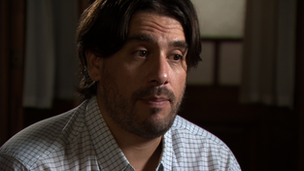
Rodolfo Fernando Guillermo: "They have stolen a part of my life"
But they were determined to find out their fate. Many joined a group known as Mothers of the Plaza de Mayo, named after the square in front of the presidential palace where they gathered to demand information about their children's whereabouts.
When it became clear that some of those abducted had given birth while in detention, some of the Mothers created a new group.
They became the Grandmothers of the Plaza de Mayo and began searching for their missing grandchildren.
Guillermo is one of those stolen babies.
"I was born here," he says as we walk the dark corridors of ESMA, the navy's mechanical school.
The school in Buenos Aires is now a memorial to the disappeared, but under military rule it was one of Argentina's most notorious prisons. Of those detained there, only 150 survived.
"My mother was tied to a table, just a regular table not a hospital one, to give birth," Guillermo says.
"There was an army doctor and two other women prisoners to help."
Guillermo's parents were in their early 20s when they were rounded up by the military. He says their only crime was to fight against the dictatorship.
"They wanted change, equality, freedom and democracy."
He says that after he was born, his mother asked the doctor if she could hold him.
"She named me Rodolfo Fernando Guillermo. She spoke to me and told me she was my mum."
It was the last he saw of her.
Tireless search
Guillermo may have never found out about the circumstances of his birth had it not been for the tireless campaign by the Grandmothers.
They spoke at public meetings, won recognition from international human rights organisations and used sympathetic radio and TV stations to advertise their search.
Slowly, they began to receive anonymous calls and tip-offs about the stolen babies.
Twenty-five years after Guillermo was born, his biological family, the Roisinblits, received a call telling them where they could find the boy they suspected may be their grandson.
Guillermo and Rosa Roisinblit sent blood samples to a genetic data bank which had been set up by the Grandmothers for the purpose of reuniting stolen babies with their grandparents.
A month later, Rosa received a phone call from the geneticist who had carried out the test.
"She said, 'Rosa, he's your grandson'.
"We were so happy. We jumped, we screamed, we cried, we laughed, and then we jumped again," Rosa remembers.
Guillermo's response was more measured. He says he felt a mixture of emotions ranging from confusion and fear to sadness.
But he also had a feeling that he had lost a lot of time getting to know his biological family.
"I had spent so much time with the people I thought were my family and they weren't," he says.
"They have stolen a part of my life."
Guillermo says he hated his adoptive father, who had been violent, but that he loved the woman who had pretended to be his mother for more than 20 years.
"I still see her," he says. "It is not easy to break the ties."
Painful truths
And not all of the stolen babies find it easy to deal with the truth.
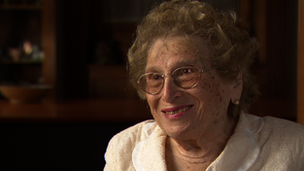
Rosa Roisinblit says the Grandmothers are still searching
Victoria Montenegro was raised as the daughter of a colonel, a man she adored.
When she was told he might not be her natural father and that he had ordered the murder of her biological parents, she refused to believe it.
"I really didn't want to know the truth or anything about my real family," she recalls.
She says she was angry with the Mothers and Grandmothers for telling her about her mother, Hilda Romana Torres, who was killed just 10 days after she gave birth to Victoria.
"I hated them profoundly," Victoria says.
She says she was convinced she was the biological daughter of the Colonel and that the Grandmothers were targeting him for political reasons.
"I had been brought up to believe that our country had gone through a war and that he had had to fight in that war and it was for that reason that they wanted their revenge on him," she remembers.
Victoria finally agreed to take a DNA test and learned her true identity. Her abductors were sent to prison.
She says her feelings towards them have changed radically and have nothing to do with love. "We were like a spoil of war to them."
"I now see that my life must be what I can recuperate from my life by acknowledging my true identity," she says.
The Grandmothers are not giving up their search. And Rosa, who is 92, and reunited with Guillermo, is now searching on behalf of others.
"We found our 108th child this year," she says with a broad grin.
Her face then looks sad and determined, "but we have more than 400 still to find".
Watch Sue Lloyd-Roberts' full report on BBC Newsnight on Thursday 4 April 2013 at 22:30 BST on BBC Two and afterwards on the BBC iPlayer and Newsnight website.
- Published24 March 2013
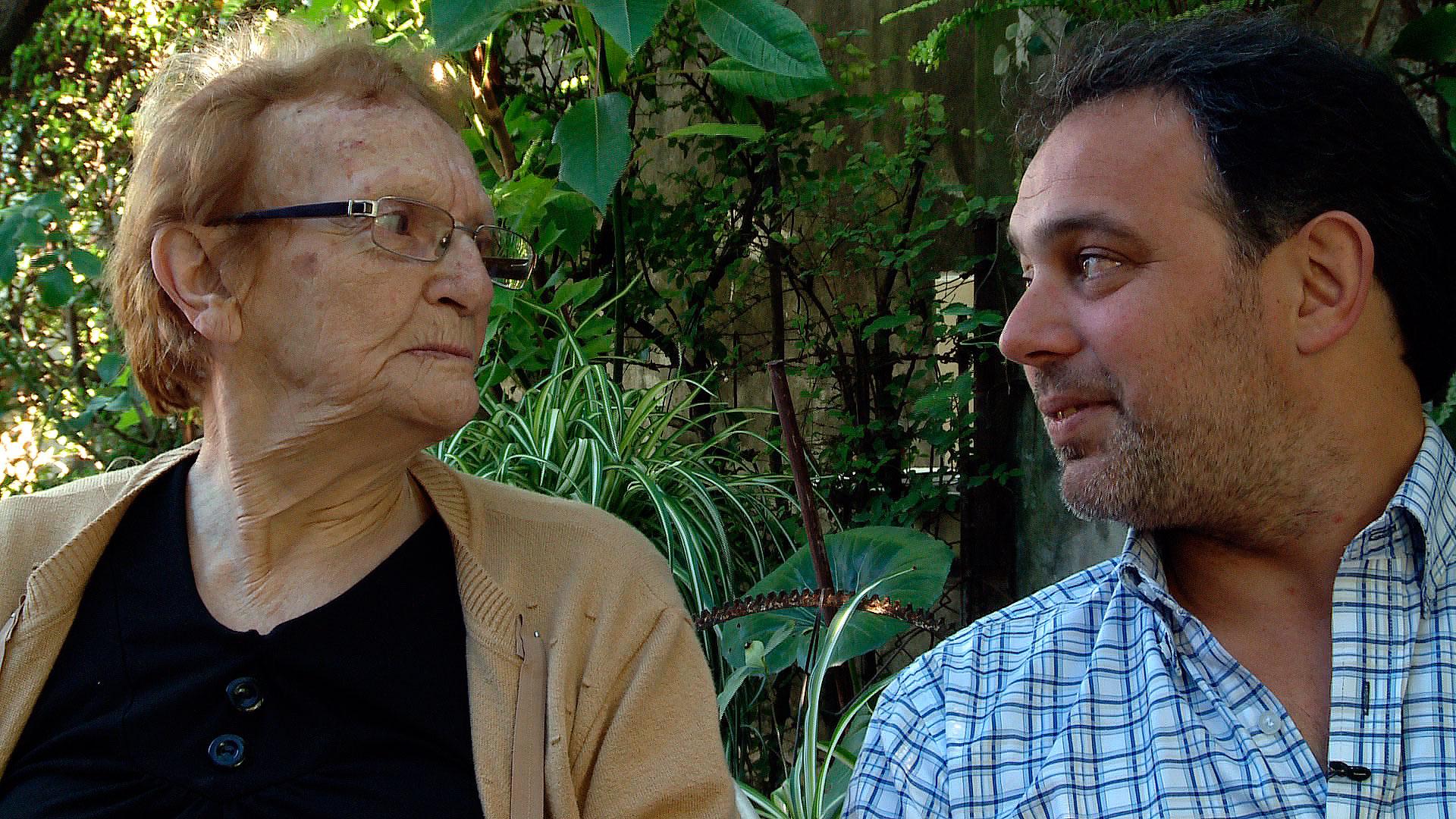
- Published15 March 2013
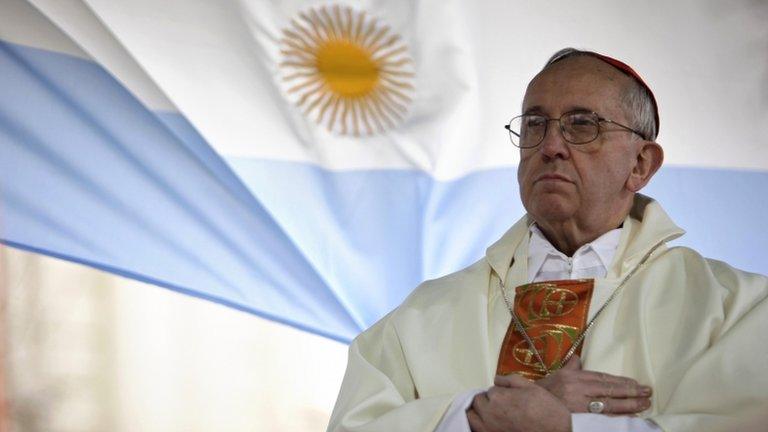
- Published8 August 2012
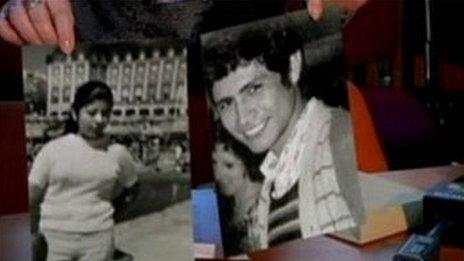
- Published29 April 2012
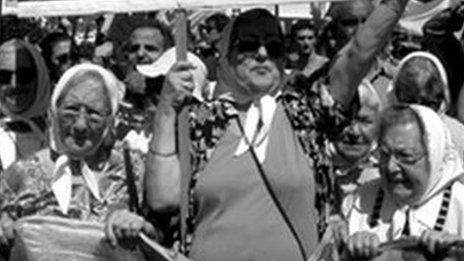
- Published8 January 2024
